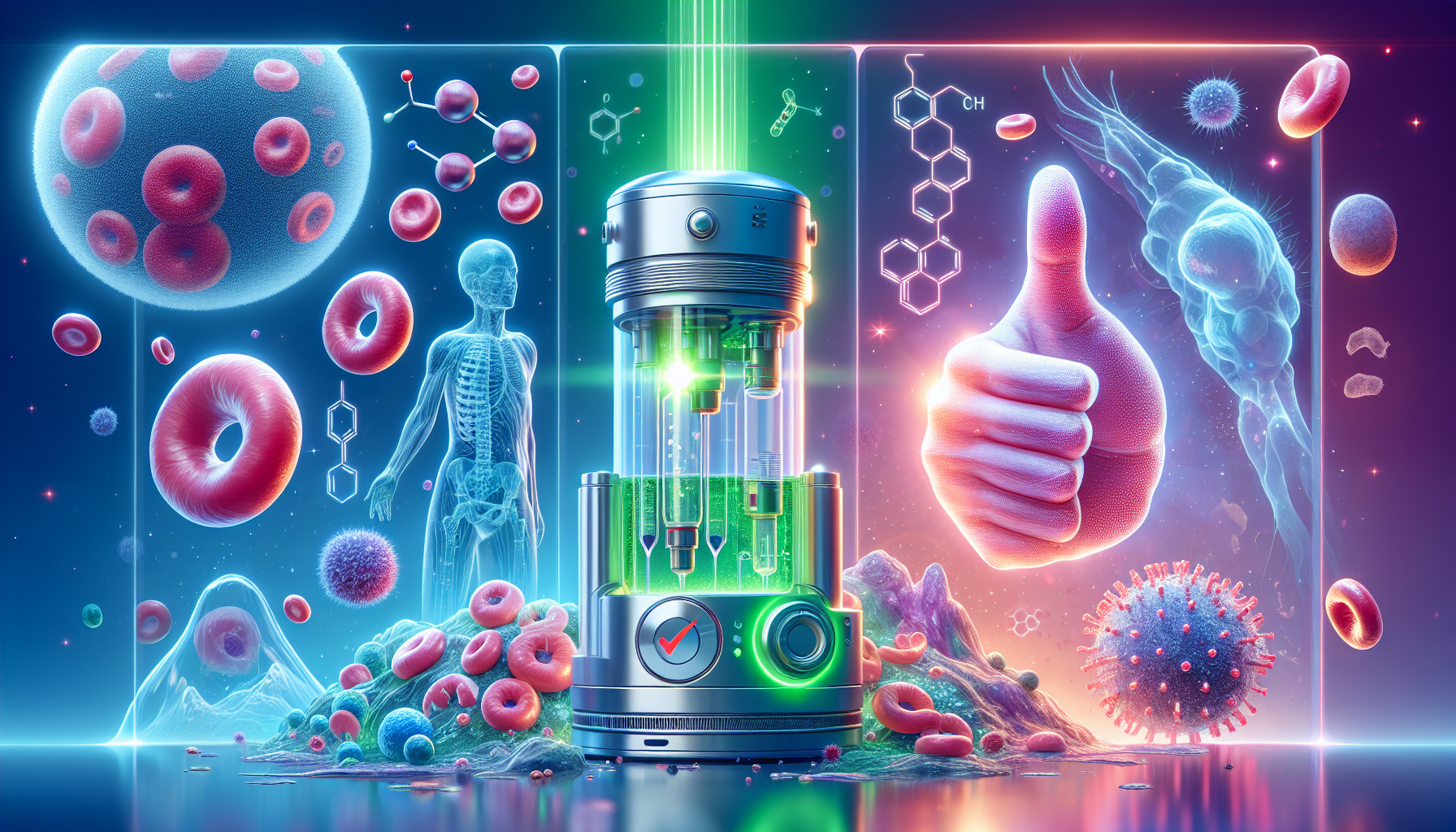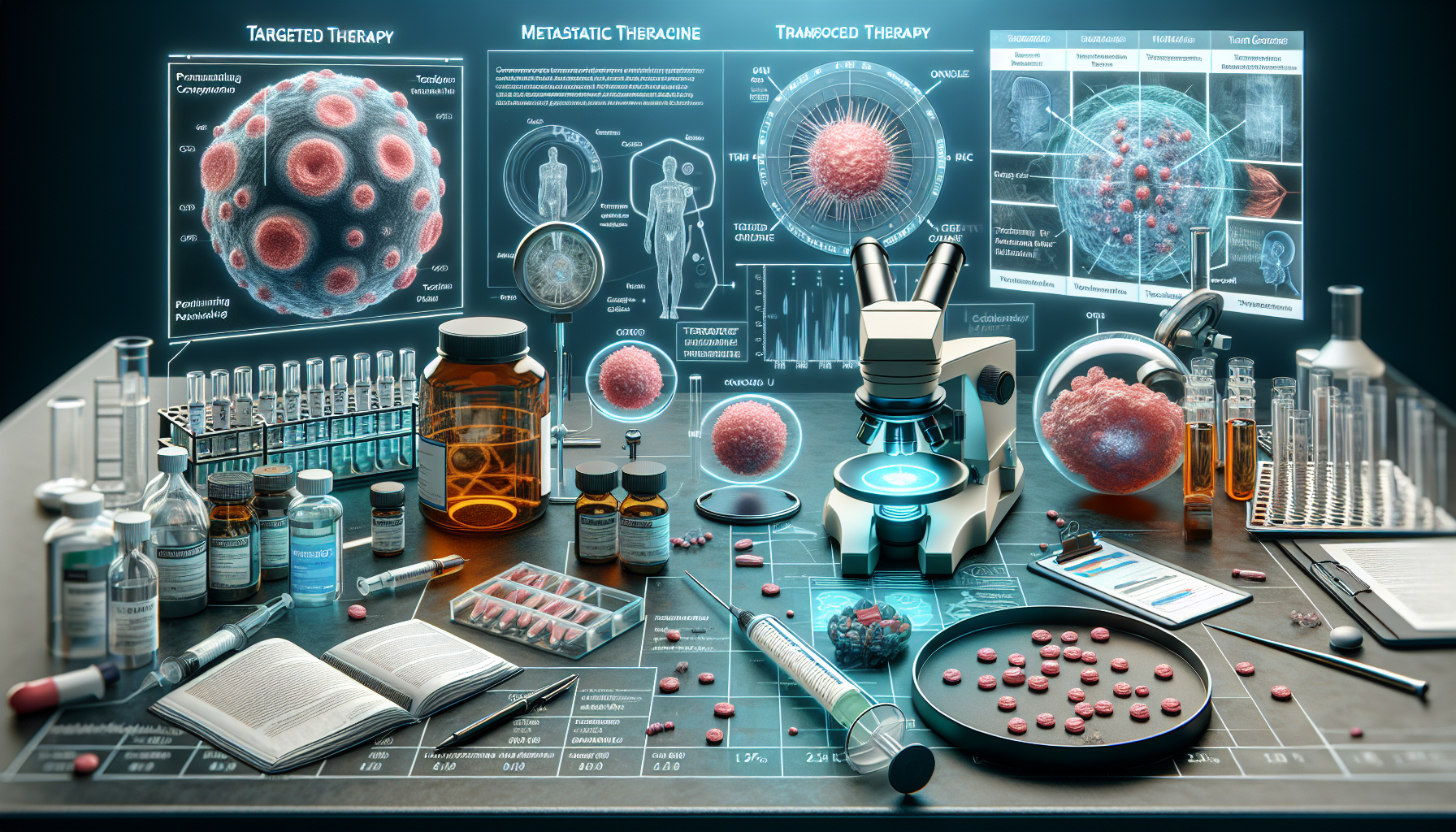Innovative Assay for Tracking Cancer Therapy Progress
Key Takeaways
- New assay measures effects of radioligand therapy on tumors.
- Assay utilizes advanced techniques for precise analysis.
- Promotes personalized treatment plans and improved patient outcomes.
Did You Know?
Introduction to Radioligand Therapy (RLT)
Radioligand therapy (RLT) is an advanced form of cancer treatment that uses radioactive isotopes linked to antibodies to target and destroy cancer cells. This therapy provides a focused approach to treating tumors by directly attacking cancer cells while minimizing damage to surrounding healthy tissue.
Navigate BioPharma Services, Inc., a leader in precision medicine, has recently launched an innovative new assay to measure the effects of RLT on tumors. This development promises to enhance our understanding of how RLT affects cancer cells and their surrounding environment.
Understanding the New Assay
The assay developed by Navigate BioPharma utilizes sophisticated techniques such as multiplex immunofluorescence (mIF) and automated quantitative analysis (AQUA) algorithms. These methods are combined to measure changes in key protein markers within tumor tissues following RLT.
These protein markers include those associated with DNA damage, such as p21/CIP1 for cell cycle arrest and CHK2 and gH2Ax for DNA repair. The assay also tracks markers like Ki67, which identifies cells that are actively proliferating and therefore more susceptible to the effects of ionizing radiation.
Key Benefits of the New Assay
One of the most significant advantages of this assay is its ability to offer a comprehensive analysis of RLT's impact on the tumor and the surrounding tissue. By quantifying these changes, researchers and clinicians can gain valuable insights into the therapy's effectiveness and mechanisms of action.
This assay's precise measurement of pharmacodynamic markers helps in making informed decisions about treatment plans and evaluating the efficacy of new radioligand therapies. Ultimately, this leads to accelerated drug development and improved patient outcomes.
The Importance of Precision Medicine
Precision medicine aims to tailor treatments to individual patients based on their genetic, environmental, and lifestyle factors. Navigate BioPharma's assay fits perfectly within this framework by providing detailed information about how a patient's tumor responds to RLT.
Such information is crucial for developing personalized treatment plans that maximize effectiveness and minimize side effects. It also aids in identifying which patients are most likely to benefit from specific therapies.
Navigating the Future of Cancer Treatment
With this new assay, Navigate BioPharma reinforces its commitment to advancing the field of precision medicine. Their expertise in biomarker development and advanced analytical techniques positions them as a valuable partner for companies developing new cancer therapies.
This assay not only supports drug development but also enhances our overall understanding of cancer biology and treatment responses. This could lead to more effective therapies and improved outcomes for patients battling cancer.
Conclusion
Navigate BioPharma's innovative assay for measuring the effects of radioligand therapy represents a significant step forward in cancer treatment. By providing detailed insights into how this therapy affects cancer cells and their environment, this assay helps to optimize treatment plans and accelerate the development of new therapies.
With ongoing advancements in precision medicine, tools like Navigate BioPharma's assay will continue to play a critical role in the fight against cancer, improving the lives of patients worldwide.
References
- American Association for Cancer Research (AACR) Annual Meeting 2024https://www.aacr.org/meeting/aacr-annual-meeting-2024/
- Navigate BioPharma Services, Inc.https://www.navigatebp.com
- Multiplex Immunofluorescence Techniquehttps://www.sciencedirect.com/topics/immunology-and-microbiology/multiplex-immunofluorescence
- American Cancer Society: Radioligand Therapyhttps://www.cancer.org/treatment/treatments-and-side-effects/treatment-types/radiation/radioligand-therapy.html






